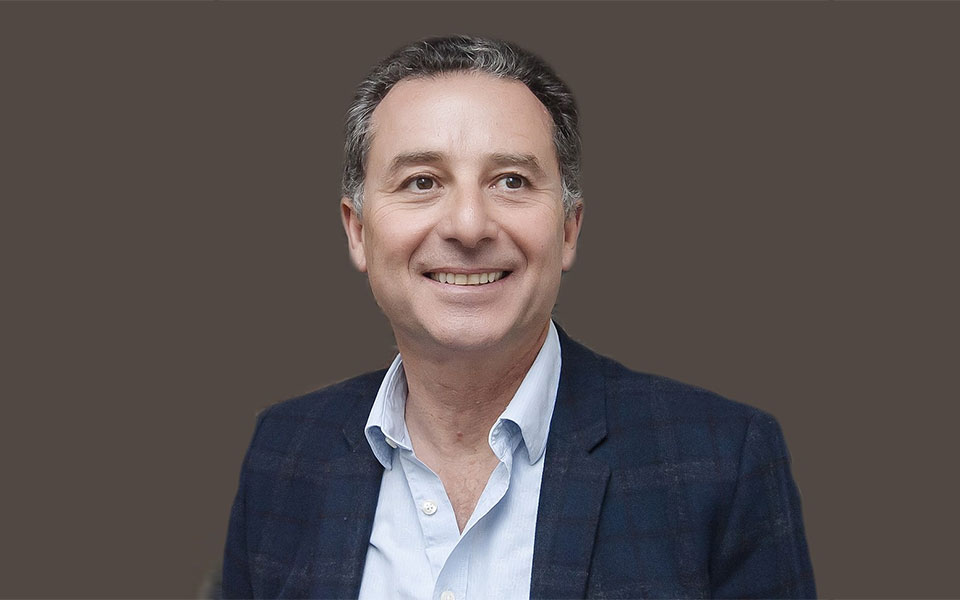ESG: A Window To The Future

“The old is dying and the new is struggling to be born; in this interregnum, a great variety of morbid symptoms appear.” – Antonio Gramsci
In a recent leading article about the future of ESG, the Economist magazine accurately observed the current morbid symptoms. It then proceeded to draw the wrong diagnosis and, not surprisingly, prescribing the wrong treatment.
“[ESG] is an unholy mess…the various scoring systems have gaping inconsistencies and are easily gamed.”
These couple of sentences from the leader are irrefutable. But they are merely the symptoms not the disease.
The Symptoms
ESG is one of an alphabet soup of descriptors that all point in the same direction. ESG, CSR, SDGs, sustainability, carbon emissions, purpose-driven business, stakeholder capitalism, ‘taking a stand’ on culture war issues…and the rest, are all part of the utterly confusing and increasingly frustrating exhortations to business to ‘do better.’ It feels as though everyone is throwing mud at the business wall hoping that some of it will stick – and that they, be it rating agencies, consulting firms, or any other business hoping to capitalize, will be the ones to enhance their own business out of this mayhem. All of it is largely well-intended.
Unsurprisingly, business executives are starting to throw their hands up in ever-mounting exasperation. How are we expected to cope with all this stuff and still run our business?
Good question.
The natural reaction of any human being or organization when overwhelmed is to try to game the system and/or to defer and delay. Ask for ‘evidence’ and perfect and uniform quantification and so that we can continue to do business as usual while all that is sought. And if some of it cannot be accurately quantified, then we can’t possibly be expected to deal with it.
Hence the proliferation of ‘greenwashing’, of highly deficient scoring systems still in their infancy, many generating perverse incentives that make things worse, and of much other chaotic activity that creates the perception of progress while hewing to the status quo as long as possible.
These are the symptoms.
The Diagnosis
The net result of this muddle is that ‘ESG’ is being degraded into a measurement and compliance system and subjected to a tickbox approach.
To get at the appropriate diagnosis, we need to go back to first principles.
‘ESG’ is just one manifestation of the fact that the socio-cultural-political climate has changed dramatically over the last couple of decades. The nature and tone of political debate has become more heated. Political positions have become more polarized. Previous certainties have gone out of the window – our views on globalization; the primacy of laissez faire neo-liberal ideology; the supposed effectiveness of trickle-down economics; our tolerance of the externalities generated by business activity; the acceptance of the idea that the role of business is exclusively to maximise shareholder value; the perils of financialization; and many other political issues too numerous to list. All these previously agreed upon certainties are now contested.
The fundamental question for business leaders is therefore a simple one: how do I evolve and adapt my business practices to succeed in this highly polarized political environment and the shattering of previously held ‘truths’?
None of this can be reduced to ESG metrics or transformed into a tickbox exercise delegated to some newly established department. Metrics and scoring systems may be a useful aid. Or, as seems currently to be the case, they may add even more confusion. But, in any case, they are a bit player not the central character in this drama – and they should be treated as such.
The Treatment
Given that it has drawn the wrong diagnosis from the visible symptoms, it is perhaps unsurprising that The Economist article puts forward a bizarre prescription: forget everything else and just focus on carbon emissions.
Really?
The proposed prescription has one merit. It highlights the special nature of climate change – potentially having a huge impact on planetary stability and our children’s and grandchildren’s lives, and, unlike other stuff, is likely irreversible. It must be a high priority.
But that does not mean that corporations either can or should just focus on one, measurable issue, carbon emissions, and ignore all else.
Such an approach ignores the fact that our societies are complex adaptive systems where everything is interconnected. Picking out one element of the system while ignoring all else it interacts with is a sure recipe for failure as every complexity scientist will tell you. Reducing emissions to tackling climate change also depends on a set of political and societal factors that will enable us to do that. Cutting the ‘E’ in ESG adrift as the graphic cover of the magazine suggests – and then expecting that to work – takes us back to now obsolete thinking that we can isolate individual issues and tackle them without understanding the interconnections.
Even if corporations were to try to ignore all else except carbon emissions, the world will not allow them to do so. They will not stop being questioned on labor conditions in their supply chains, whether it’s OK to keep doing business in Russia or how they handle their China business, on whether they have discriminatory employment policies, or this that and the other among a myriad of other issues.
Imagine a CEO standing up and responding to those challenges with “I’m not interested in any of that. I’m focusing on our carbon emissions.”
The idea of reducing management’s responsibilities to one clear, measurable outcome and ignoring all else is as seductive in its beguiling simplicity as was the concept maximising financial shareholder value. Simple, clear, comfortable, and wrong.
How lovely if we could all lead our lives following one single, easily measurable outcome rather than living in the real world of conflicting objectives and difficult trade-offs. But, as we all know, putting on blinkers and attempting to shield oneself from messy realities is not often a route to success.
The reality is that ESG is not an issue of measurement and compliance. It questions the very nature of what we understand business to be for. What the societies and polities in which they are embedded are coming to expect from businesses large, medium and small. It is a window into the future of business. As always, those who can adapt best and quickest will outpace their rivals.
But how to adapt? That’s maybe a subject for the next article.
Written by Dr. Joe Zammit-Lucia.
Have you read?
Most Expensive Men’s Watches In The World.
Most Expensive Women’s Handbags.
Everything You Need to Know About Candidate Sourcing in 2022.
Wealthiest Women Entrepreneurs Of 2022.
.
Best Super-Luxury Cars For CEOs And Executives, 2022.
Add CEOWORLD magazine to your Google News feed.
Follow CEOWORLD magazine headlines on: Google News, LinkedIn, Twitter, and Facebook.
This report/news/ranking/statistics has been prepared only for general guidance on matters of interest and does not constitute professional advice. You should not act upon the information contained in this publication without obtaining specific professional advice. No representation or warranty (express or implied) is given as to the accuracy or completeness of the information contained in this publication, and, to the extent permitted by law, CEOWORLD magazine does not accept or assume any liability, responsibility or duty of care for any consequences of you or anyone else acting, or refraining to act, in reliance on the information contained in this publication or for any decision based on it.
Copyright 2024 The CEOWORLD magazine. All rights reserved. This material (and any extract from it) must not be copied, redistributed or placed on any website, without CEOWORLD magazine' prior written consent. For media queries, please contact: info@ceoworld.biz
SUBSCRIBE NEWSLETTER








